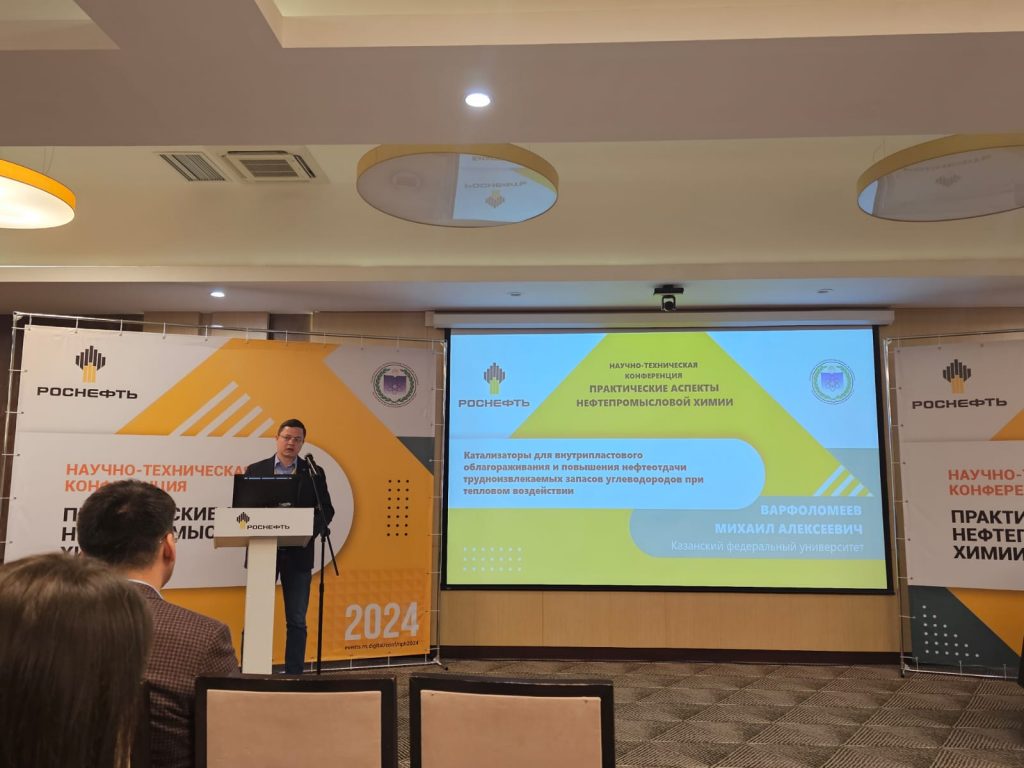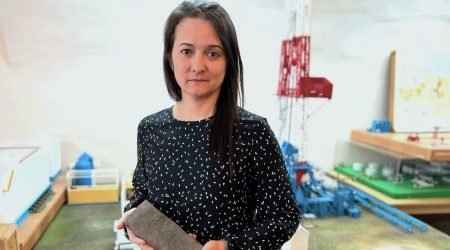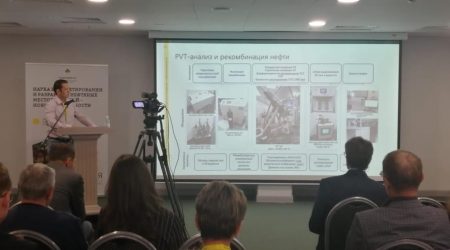Center for Liquid Hydrocarbons’ projects in oilfield chemistry presented at a conference in Ufa

Scientists of the Institute of Geology and Oil and Gas Technologies represented Kazan Federal University at the conference Practical Aspects of Oilfield Chemistry on 22 – 24 May.
The co-organizers were Rosneft-BashNIPIneft Research Institute and Bashkortostan Academy of Sciences.
This year the delegates of the conference discussed topical issues of oilfield chemistry and automation of oil and gas industry processes. Special attention was paid to such topics as application of chemical reagents in oil and oil transportation, modern protective technologies, production of chemical reagents, automation and digitization, as well as green chemistry. These and many other issues were discussed during the conference.
On the first day of the event, the plenary section was joined by Mikhail Varfolomeev, Chair of the Department of Petroleum Engineering of KFU. He made a report on KFU’s developments and presented the whole spectrum of research from synthesis, efficiency assessment and pilot production and testing of reagents. The topic of application of catalysts for in-situ refining and enhanced oil recovery of hard-to-recover hydrocarbon reserves under thermal influence was presented in more detail. It is worth noting that reagents from domestic petroleum products and natural components are superior to contemporary foreign competitors.
“This conference brought together leading specialists of oilfield chemistry – from oil production, oilfield services and chemical companies, as well as from research institutes and universities. It is a very effective platform for sharing experience, discussing new projects. We presented the results of work in specialized low-tonnage chemistry for the oil and gas industry. Special attention was paid to research and application of catalysts for thermal methods of enhanced oil recovery. These methods are actively used for the development of hard-to-recover hydrocarbon fields. Application of catalytic systems together with them allows to reduce the viscosity of heavy oil, the share of high molecular weight components, the temperature of initiation of combustion processes and achieve a number of other positive aspects, which in general lead to an increase in oil recovery, which is shown not only in laboratories but also on real oil fields,” said Dr Varfolomeev.
Vladislav Chalin, Lab Assistant at the Laboratory of Enhanced Oil Recovery, presented the results of comparison of the efficiency of aquathermolysis catalysts on the example of a carbonate field of extra-viscous oil. As the speaker noted, the use of aquathermolysis catalysts (both oil-soluble and water-soluble), allows to increase the oil displacement ratio compared to the basic variant of steam injection.
“The presence of catalysts allows to achieve a greater degree of oil refinement compared to the basic variant of steam injection: viscosity and asphaltene content reaches the lowest values,” explained Chalin.
In the following days, KFU scientists presented the results of studying the kinetics of acid compositions with surfactants for oil production stimulation, as well as the topic of synthesis and research of gel particles for application for technologies of conformance control, behind-the-casing circulation control, and well killing. Guzel Ganieva, Senior Research Associate of the Laboratory of Enhanced Oil Recovery, and Aidar Mustafin, Junior Research Associate of the same lab, made relevant reports.










